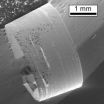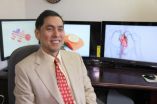(Press-News.org) Politicians know that turning on the tears can be a vote winner, but how does the political manipulation of our emotions actually work? Research in Political Psychology explores how emotions such as anxiety, even if their cause has nothing to do with politics, can result in a hardening of our views.
"There's been a lot of focus in recent years on emotions and political attitudes, but the ways we, as political scientists, have studied this phenomena have made it hard to draw firm conclusions," said Dr. Jonathan Renshon, from the University of Wisconsin-Madison. "We bypassed many of the methodological problems of previous studies by inducing an emotion unrelated to politics and measuring its effects not with self-reports but with tonic skin conductance."
The authors believed that induced anxiety could 'carry over' to impact political beliefs, potentially triggering prejudice toward groups such as immigrants. When anxiety levels are high voters are more likely to recall negative experiences with immigrants and interpret ambiguous information in a more negative and threatening manner.
To test the theory 138 men from Cambridge, Massachusetts were asked to watch a series of videos before answering surveys. First the group watched relaxing images of beaches and palm trees, before being divided into groups. Two groups watched soothing music or a screensaver of abstract shapes. The third group was subjected to Sylvester Stallone's "Cliffhanger."
The results showed that the heightened physiological reactivity caused by watching two minutes of rope dangling peril, led to stronger anti-immigration attitudes.
"We found that the anxiety we generated was powerful enough that people couldn't simply turn it off, it carried over to unrelated domains and actually influenced people's political beliefs, particularly their attitudes towards immigrants," concluded Renshon. "This is all the more important as political campaigns become more adept at stimulating and manipulating the emotions of the general public."
INFORMATION: END
Tears and fears: How do emotions change our political attitudes?
2014-03-04
ELSE PRESS RELEASES FROM THIS DATE:
Separation of DNA and proteins through improved gel electrophoresis
2014-03-04
Medical diagnoses and DNA sequencing can be made cheaper, faster and more reliable using a new miniaturized technique for gel electrophoresis based on conducting polymer materials, according to researchers at Linköping University in Sweden.
Gel electrophoresis is a process through which different proteins or DNA fragments are separated so that they can be identified and studied. Today, most separations require considerable manual work and are carried-out on large gels which require several hours to complete. The industry needs miniaturized systems capable of automatically ...
Hungry for 'likes': Anxiety over Facebook photos linked to eating disorders
2014-03-04
Facebook has become a global phenomenon and an active space for social comparison. With the increase in technology use, there is a positive correlation with decreased body image in young women. In a study published in the International Journal of Eating Disorders, 960 female college students were evaluated on the time they spend on social media sites, how important "likes" are, and whether or not they untag photos of themselves.
"Over 95% of college women in our study use Facebook, and those with Facebook accounts described typically spending 20 minutes on the site during ...
'Fore!' heads up, wide use of more flexible metallic glass coming your way
2014-03-04
LOS ALAMOS, N.M., March 3, 2014—What do some high-end golf clubs and your living room window have in common? The answer is glass, but in the golf clubs' case it's a specialized glass product, called metallic glass, with the ability to be bent considerably and spring back into its original form. Your windows, as you know, aren't quite as forgiving of a sudden impact, and they shatter – they are brittle, as opposed to ductile, or more flexible products. For the golf clubs, however, a new generation of flexible metallic glass puts more bounce back into a golf ball, from the ...
Black hawks downed: Study reveals bird threat to US military helicopters
2014-03-04
Rotary-wing aircraft, such as Apache and Chinook helicopters, play vital combat and logistical roles across the U.S. military services, but new research in the Wildlife Society Bulletin reveals how vulnerable these aircraft are to wildlife strikes.
Many types of aircraft are vulnerable to strikes, estimated to cost the aviation industry $1.2 billion worldwide per year; however, to date no assessment of strikes to military rotary-wing aircraft has been conducted.
A research team led by Dr. Brian Washburn from the Wildlife Research Center used records from the Army, Navy, ...
Blocking immune signaling stalls inflammation and insulin resistance tied to obesity
2014-03-04
Researchers at NYU Langone Medical Center have found that blocking the action of a key signaling molecule in the immune system known as Netrin-1 stalls chronic inflammation and insulin resistance tied to obesity and often derived from fatty diets.
Reporting in this week's issue of Nature Medicine, the NYU Langone team showed in experiments in mice and human tissue that Netrin-1 signaling is propelled by fat tissue growth. The team previously discovered that Netrin-1 was secreted by the immune system clean-up cells, or macrophages, whose buildup leads to inflammation. ...
High consumption of fish oil may benefit cardiovascular health, Pitt public health finds
2014-03-04
PITTSBURGH, March 4, 2014 – Eating fish in amounts comparable to those of people living in Japan seems to impart a protective factor that wards off heart disease, according to an international study funded by the National Institutes of Health (NIH) and led by the University of Pittsburgh Graduate School of Public Health.
Middle-aged Japanese men living in Japan had lower incidence of coronary artery calcification, a predictor of heart disease, than middle-aged white men living in the United States, likely due to the significantly higher consumption of omega-3 fatty acids ...
Long-term study confirms success of method for detecting spread of deadly skin cancer
2014-03-04
Research at UCLA on a technique for detecting the earliest spread of melanoma, the deadliest form of skin cancer, has confirmed that the procedure significantly prolongs patients' survival rates compared with traditional "watch and wait" techniques.
The technique, which combines lymphatic mapping and sentinel-node biopsy, allows doctors to quickly determine whether the disease has spread, or metastasized, to the lymph nodes, which occurs in approximately 20 percent of patients. Patients with cancer in their lymph nodes may benefit from having their other nearby lymph ...
Light zaps viruses: How photosensitization can stop viruses from infecting cells
2014-03-04
A UCLA-led team of researchers has found evidence that photosensitizing a virus's membrane covering can inhibit its ability to enter cells and potentially lead to the development of stronger, cheaper medications to fight a host of tough viruses.
The UCLA AIDS Institute study, published in the February issue of the Journal of Virology, is part of ongoing research on a compound called LJ001, a "broad-spectrum" antiviral that can attack a wide range of microbes.
The current paper advances the science by showing that the process of photosensitization — heightening a ...
A highly sensitive small molecule probe to evaluate potential risk for Parkinson's disease
2014-03-04
A team of researchers from National University of Singapore (NUS) have created the first two-photon, small molecule fluorogenic probe that can serve as a useful tool for the rapid assessment of an individual's potential risk for Parkinson's disease. The highly sensitive fluorescence probe can detect with high precision the activity of Monoamine Oxidase B (MAO-B), an enzyme that is found in elevated levels in patients with Parkinson's disease. This innovation paves the way for the development of less costly non-invasive technologies and devices to help monitor the risk and ...
Immune system-based therapy produces lasting remissions in melanoma patients
2014-03-04
BOSTON – A drug that unleashes the immune system to attack cancer can produce lasting remissions and hold the disease in check – for more than two years, in some cases – in many patients with advanced melanoma, according to a new study by researchers at Dana-Farber Cancer Institute, Johns Hopkins University, Yale University, and allied institutions.
The study, published online today, March 3, by the Journal of Clinical Oncology, provides the longest-term look so far at how melanoma patients have fared since receiving the drug, nivolumab, in a phase I clinical trial. The ...

